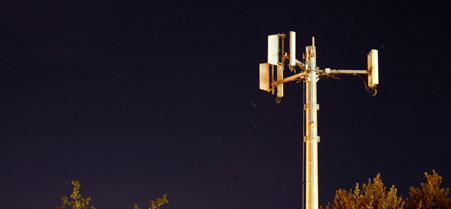Panel: LightSquared 'significantly interferes' with GPS receivers
 Flickr user howvin
Flickr user howvin
The multiagency National Space-Based Positioning, Navigation and Timing (PNT) Executive Committee reported Jan. 13 that tests of the broadband wireless network planned by startup LightSquared showed that its transmitters would cause harmful interference to many Global Positioning System receivers. As such, no further tests are required at this time, the committee concluded.
The information was included in a letter to Lawrence Strickling, chief of the National Telecommunications and Information
Administration and assistant secretary of Commerce for communications and information, from Deputy Defense Secretary Ashton B. Carter and Deputy Transportation Secretary John Porcari, co-chairmen of the executive committee. They also reported the Federal Aviation Administration concluded that LightSquared's network, designed to operate in frequencies adjacent to the GPS band, is "not compatible with several GPS-dependent safety-of-life systems."
Carter and Porcari said, "Based upon this testing and analysis, there appears to be no practical solutions or mitigations that would permit the LightSquared broadband service, as proposed, to operate in the next few months or years without significantly interfering with GPS. As a result, no additional testing is required at this time."
In a Jan. 12 letter , Strickling told Julius Genachowski, chairman of the Federal Communications Commission, that the LightSquared network also could interfere with other global navigation satellite systems. He did not identify these systems, but Russia has such a system in operation, called GLONASS, with 24 satellites and the European Union plans to have a 22-satellite system similar to GPS, called Galileo, in operation by 2014.
GPS manufacturers such as Trimble Navigation have developed receivers that tap into both GPS and GLONASS signals for increased accuracy and European companies have developed dual GPS/Galileo receivers.
Strickling also told Genachowski that the LightSquared network, which could include as many as 40,000 base stations, could potentially interfere with emergency communications in the Aeronautical Mobile Satellite (Route) Service operated by Inmarsat and the satellite-based international Global Maritime Distress and Safety System, both of which operate in frequency bands adjacent to LightSquared. He said interference to these two systems from LightSquared could result in a shift back to terrestrial radio systems, which operate in the often noisy and unreliable shortwave bands.
FCC granted LightSquared a conditional waiver to start service on Jan. 26, 2011, but said the company first had to resolve interference issues with GPS receivers.
LightSquared flunked the initial round of tests last spring, which showed the company's transmitters knocked out GPS receivers operating within a range of 600 feet to 1,895 miles. The company then proposed to use only the lower portion of its frequency band furthest away from GPS and conducted another round of interference tests last summer.
Last month the PNT executive committee reported that even with operations restricted to the lower band, LightSquared transmitters caused "harmful interference to the majority" of general purpose GPS receivers.
LightSquared, which has a $3 billion investment riding on winning FCC approval for operation, slammed the tests, managed by the Air Force Space Command, and their conclusions in a sharply worded letter to Genachowski on Friday.
The testing process was "fraught with inappropriate involvement of the GPS manufacturers, lax controls, obvious bias, lack of transparency and unexplained delays," said Jeffrey Carlisle, the company's executive vice president for regulatory affairs and public policy. The tests, he added, reached "dubious conclusions based on a highly flawed testing and analytical process."
Carlisle proposed a new round of tests managed by NTIA to start Jan. 18 and finish Feb. 17, with a final report due on Feb. 29.
Carter and Porcari said in their letter to Strickling that they plan to draft new GPS interference standards for commercial use of the spectrum adjacent to GPS that will insure use will not interfere with GPS systems "vital to economic, public safety, scientific and national security needs."
NEXT STORY: No need to rush the transition to the cloud






